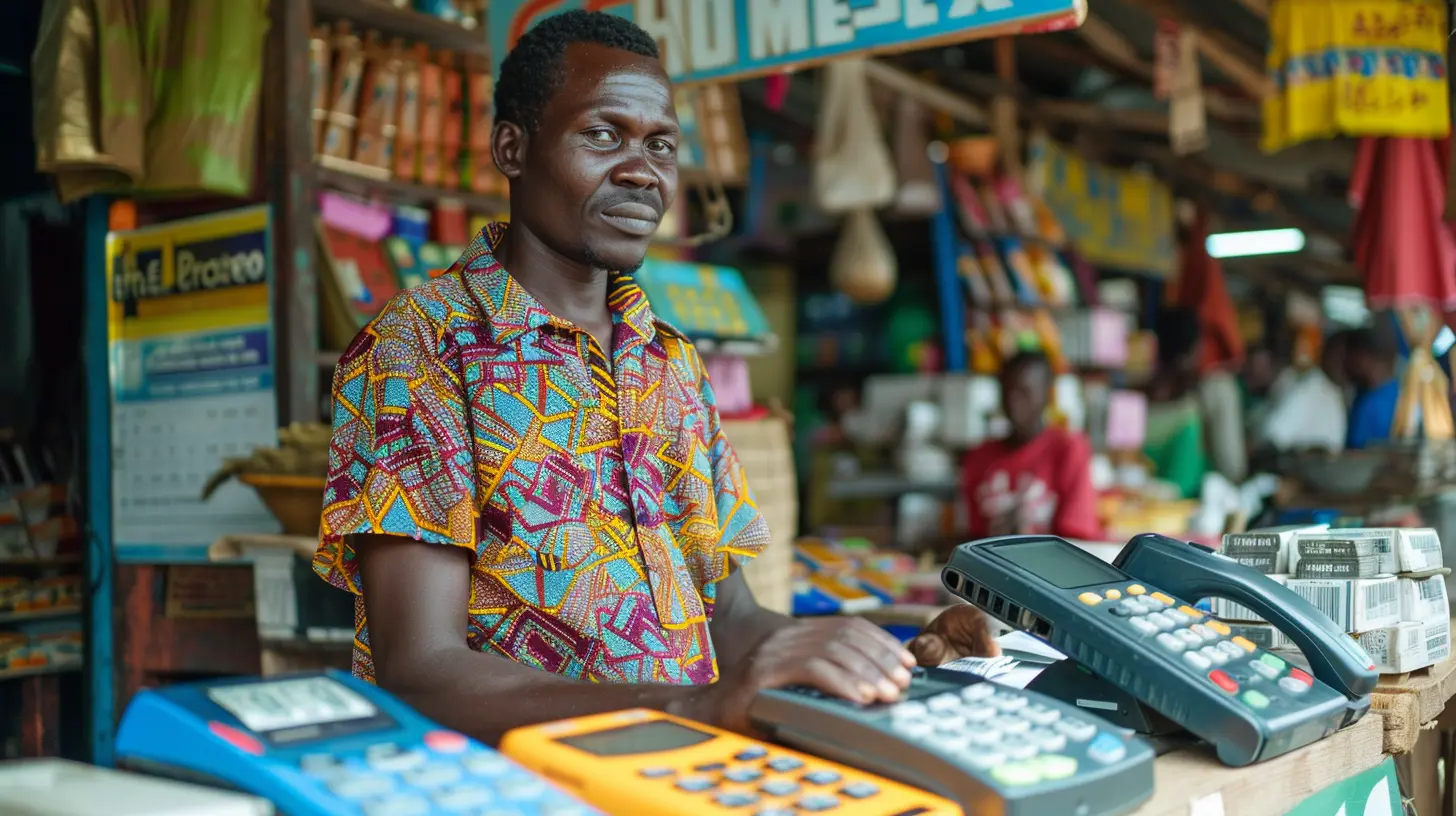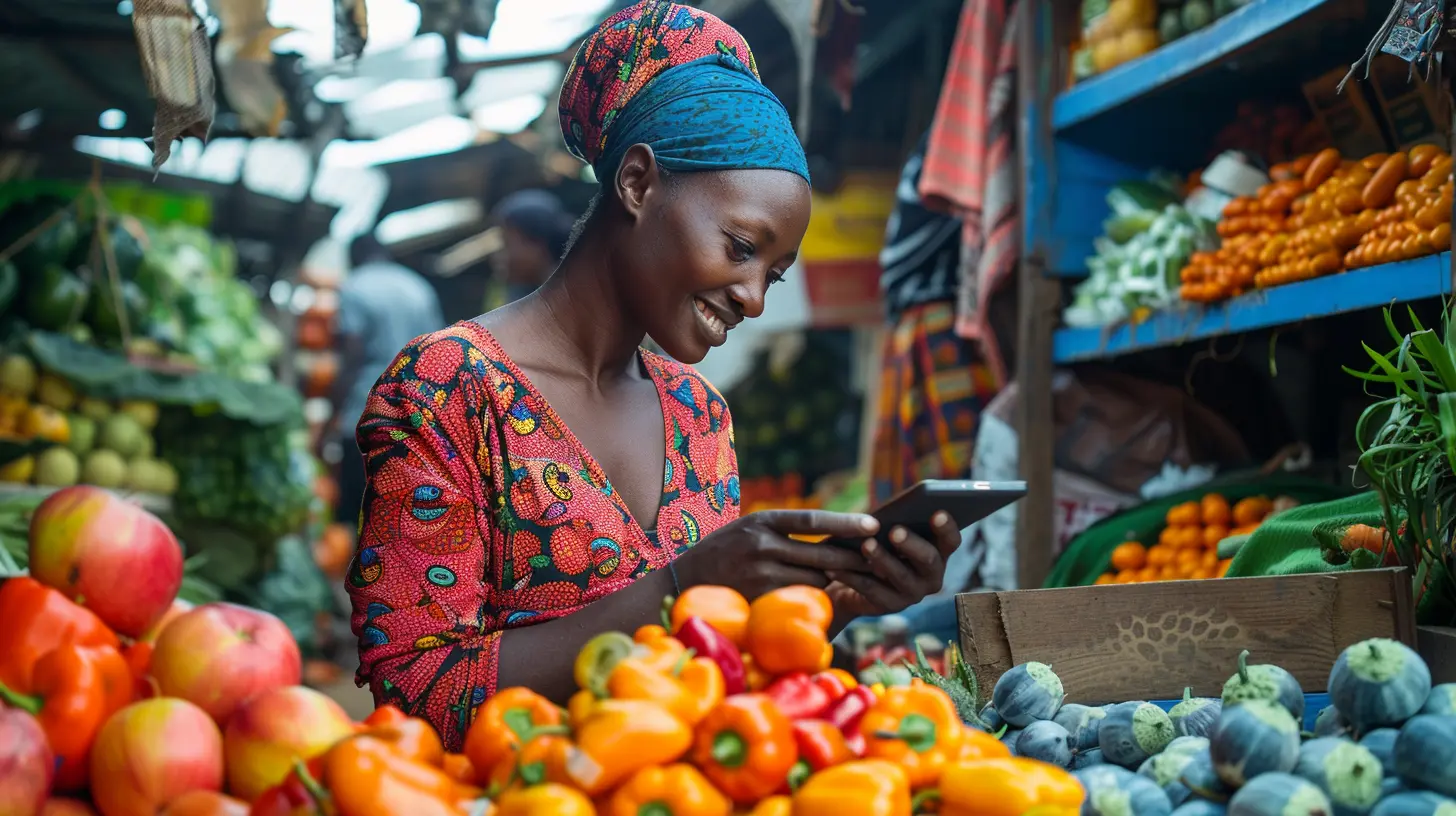Fintech's Role in Promoting Financial Inclusion in Developing Markets
5 October 2025
When you think about financial systems, you may picture the bustling stock markets of New York or the sophisticated banking infrastructures in London. But what about the millions of people living in developing markets who don’t have access to even basic financial services? That’s where fintech comes into play.
Fintech, short for financial technology, is revolutionizing the financial landscape, particularly in regions where traditional banking systems are either inaccessible or too expensive for the average person to use. But how exactly is fintech doing this? And why is it so crucial for promoting financial inclusion in developing markets? Well, let’s dive into it, shall we?

What is Financial Inclusion?
Before we get into the role of fintech, it’s important to understand what financial inclusion actually means. In simple terms, financial inclusion is about making financial services accessible to everyone, especially those who are underserved or unbanked.Imagine living in a rural area where the nearest bank is 50 miles away. Even if you had the money to open a bank account, you’d have to spend half a day just traveling there. Now, let’s not even talk about the fees involved in maintaining that account. Financial inclusion aims to eliminate these barriers, ensuring that everyone, regardless of location or income, has access to essential financial services like savings accounts, loans, and insurance.

Why Financial Inclusion Matters
Let's face it—money makes the world go round. Without access to financial services, people are often stuck in a vicious cycle of poverty. They can’t save for emergencies, access credit to start a business, or even make secure transactions. Financial inclusion can help break that cycle by giving people the tools they need to improve their lives.For example, if a farmer in a developing country can access a microloan, they can buy better seeds, increase their crop yield, and, eventually, improve their income. It’s not just about having a bank account; it’s about creating opportunities for people to better their financial situation.

The Role of Fintech in Developing Markets
So, how is fintech stepping in to solve this problem? Fintech companies are leveraging technology to offer financial services in a more accessible, affordable, and user-friendly way. Let’s explore some of the ways fintech is promoting financial inclusion in developing markets.1. Mobile Banking and Payments
One of the most significant contributions of fintech to financial inclusion is mobile banking. In developing markets, many people don’t have access to traditional banks, but guess what they do have? Mobile phones!Fintech companies have capitalized on the widespread use of mobile devices by offering mobile banking services that allow people to save, transfer, and receive money without ever stepping foot in a bank. Services like M-Pesa in Kenya have transformed the way people handle their finances. M-Pesa allows users to store money on their phones and send it to others via text message. It's as simple as sending a text message to a friend, but instead of words, you're sending cash.
This is a game-changer for those living in rural areas or places where banks are few and far between. And it’s not just about convenience; it’s about empowerment. With mobile banking, people can take control of their finances, save for the future, and make payments securely.
2. Microloans and Peer-to-Peer Lending
Access to credit is another significant hurdle for people in developing markets. Traditional banks often either don’t want to take the risk or charge exorbitant interest rates that make loans out of reach for the average person.Enter fintech, which has made microloans and peer-to-peer lending a reality for millions of people. These platforms connect lenders directly with borrowers, cutting out the middleman and reducing costs. Companies like Tala and Branch are offering small, short-term loans via mobile apps with minimal paperwork and quick approval times.
Think of it this way: Imagine you’re a small business owner who needs some quick cash to stock up on inventory. Instead of jumping through hoops to get a loan from a bank, you can apply for a microloan on your phone and get the funds within hours. It’s like borrowing money from a friend but on a much larger scale.
3. Digital Wallets and Cryptocurrencies
Digital wallets and cryptocurrencies are another area where fintech is making headway. In many developing markets, people don’t have access to secure, reliable banking systems. This makes storing and transferring money a risky proposition. Digital wallets like Paytm and Alipay are stepping in to fill this gap, providing a secure and convenient way for people to store their money and make transactions.Cryptocurrencies also play a role in promoting financial inclusion. In regions where the local currency is unstable or inflation is rampant, cryptocurrencies like Bitcoin can provide an alternative store of value. While cryptocurrencies are still relatively new and not widely adopted in many developing markets, they hold the potential to offer financial services to those who are excluded from traditional banking systems.
4. Insurtech: Affordable and Accessible Insurance
Insurance is one of those things that people often take for granted, but in developing markets, having insurance is a luxury many people can’t afford. Fintech is changing that by offering affordable, accessible insurance products through insurtech platforms.These platforms use algorithms and data analytics to offer customized insurance plans at lower costs. For example, microinsurance products cover specific risks, like a health emergency or crop failure, for a small premium. Companies like BIMA and MicroEnsure are paving the way by offering these kinds of services via mobile apps, making it easier for people in developing markets to access insurance.
5. RegTech: Ensuring Compliance and Security
One of the main concerns when it comes to financial services in developing markets is ensuring compliance with regulations and maintaining security. This is where regulatory technology, or RegTech, comes into the picture. Fintech companies are using RegTech to ensure their services comply with local regulations, making it safer for people to use their platforms.RegTech helps fintech companies streamline compliance processes, reduce fraud, and protect user data. This is especially important in developing markets where trust in financial institutions can be low. By ensuring that their platforms are secure and compliant, fintech companies are building trust and encouraging more people to use their services.

Challenges Facing Fintech in Developing Markets
While fintech has made significant strides in promoting financial inclusion in developing markets, it’s not without its challenges. Let’s take a look at some of the hurdles fintech companies face:1. Lack of Infrastructure
In many developing markets, the basic infrastructure needed to support fintech services, such as reliable internet access and mobile networks, is lacking. While mobile penetration is high, not everyone has access to smartphones or data plans that allow them to use these services effectively.2. Regulatory Barriers
Different countries have different regulations when it comes to financial services, and navigating these laws can be tricky for fintech companies. In some cases, regulations are outdated and don’t account for the innovations brought about by fintech. As governments catch up, fintech companies must work closely with regulators to ensure they comply with local laws.3. Digital Literacy
While mobile banking and digital wallets are convenient, they do require a certain level of digital literacy. In developing markets, many people may not be familiar with how to use these technologies, which can limit their adoption. Fintech companies need to invest in education and outreach programs to ensure that people know how to use their services.4. Trust Issues
In regions where financial institutions have historically been unreliable or corrupt, people may be hesitant to trust new fintech platforms. Building trust is crucial for the long-term success of fintech in developing markets, and companies need to focus on providing secure, transparent, and user-friendly services.The Future of Fintech in Developing Markets
Despite these challenges, the future of fintech in developing markets looks bright. As technology continues to evolve, fintech companies will find new and innovative ways to offer financial services to those who need them most.Artificial intelligence (AI), blockchain, and machine learning are just a few technologies that will likely play a role in the future of fintech. These technologies can help improve the efficiency and security of financial services, making them even more accessible to people in developing markets.
Moreover, as governments and regulators become more familiar with fintech, we can expect to see more supportive policies that encourage the growth of this sector. This will create a more conducive environment for fintech companies to thrive and, ultimately, promote greater financial inclusion.
Conclusion
Fintech is playing a crucial role in promoting financial inclusion in developing markets. From mobile banking to microloans, fintech is providing people with the tools they need to manage their finances, access credit, and improve their financial well-being. While challenges remain, the future of fintech in developing markets is promising, and its potential to transform lives is immense.If you live in a place where financial services are a given, it’s easy to take them for granted. But for millions of people in developing markets, fintech is opening doors that were previously closed. And that’s something we can all get excited about.
all images in this post were generated using AI tools
Category:
FintechAuthor:

Reese McQuillan
Discussion
rate this article
1 comments
Adrian McCarty
Fintech significantly enhances access to financial services for underserved populations, fostering economic growth and empowerment in developing markets.
October 6, 2025 at 3:48 AM

Reese McQuillan
Thank you for your insightful comment! I completely agree that fintech plays a crucial role in improving access to financial services and empowering underserved communities in developing markets.


